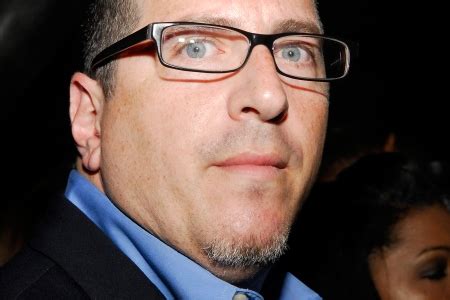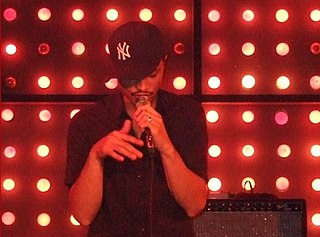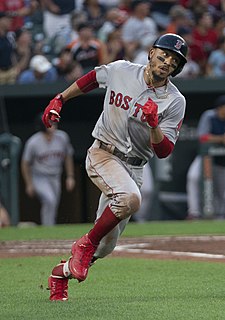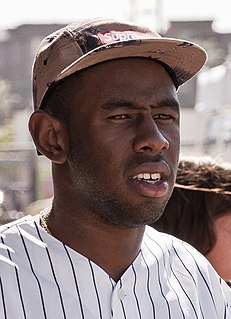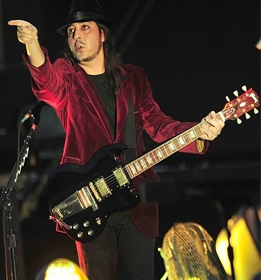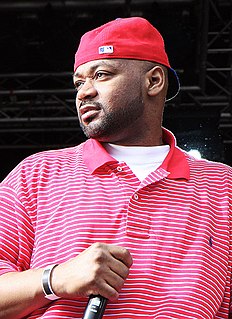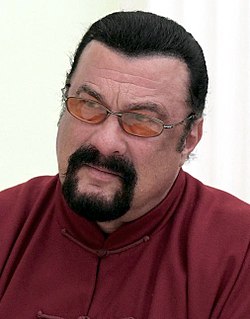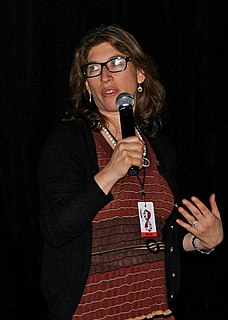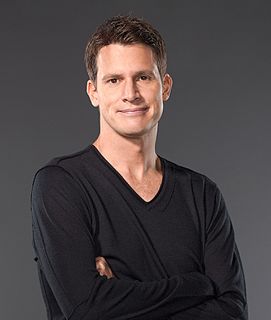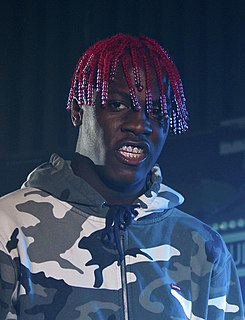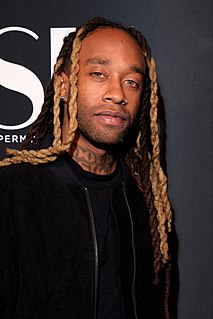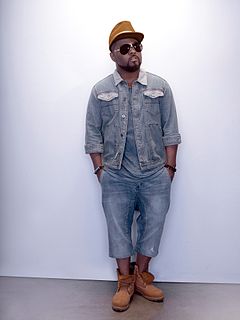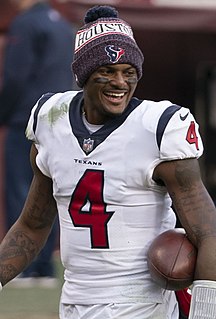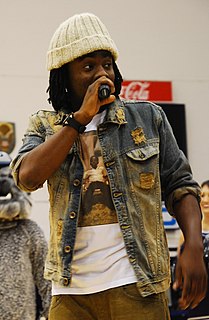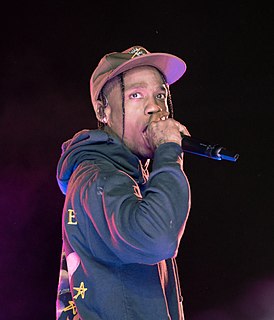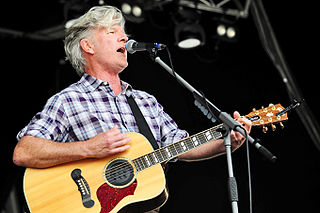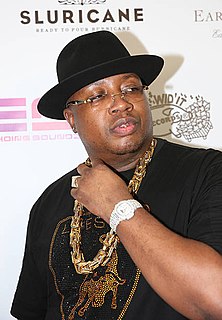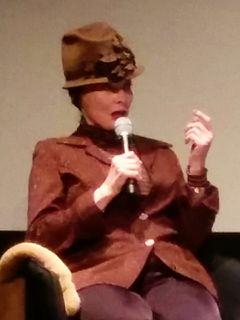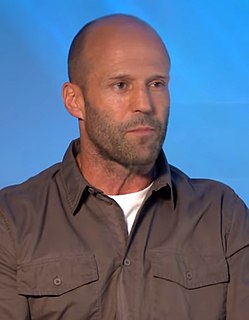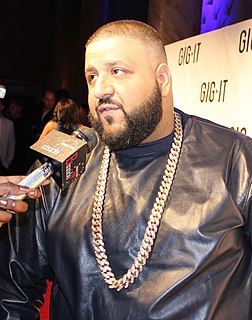Top 1200 Hop Quotes & Sayings - Page 6
Explore popular Hop quotes.
Last updated on December 12, 2024.
The current state of music journalism is not bad, but it's not great at all. Some of the hip-hop stuff people get into is exciting, because there's a passion and there's something to explain to a more mainstream audience, so you get these passionate writers who want to express their love for rap and hip-hop, which is cool. But there are too many magazines, and the access has been diminished, so the quality of profiles has gone way down. Internet stuff can be really good, though. I like the dialogue between fans on the Internet. I think that's the best rock writing that's going on right now.
I agree that all kids of all colors love hip-hop. My point in writing the book was to raise questions about the ways the hip-hop generation and the millennium generation, both who have lived their entire lives in post-segregation America, are processing race in radically different ways than any generation of Americans. I think they have a lot to tell us as a country about ways of addressing race matters.
I have always been involved with radio, whether it was as an artist talking to radio about my own songs, or as a promotion man at Def Jam to working records through my company. In 2000 I was asked to host a show in Norfolk VA and through that show I was then asked to host the morning show in Detroit. The concept of the show was around Hip Hop. We were active in the community and we wanted to do a local show that had a hip hop feel around it.
To me, Wu-Tang is beyond Wu-Tang Clan... It's just like, hip-hop is beyond Grandmaster Flash, but Grandmaster Flash was one of the first guys to hit those turntables like that. The same thing with Wu-Tang. You'll see the difference in hip-hop from the moment we came in to before we came in. We changed it. We changed the whole structure.
I think Hip Hop and Gospel are such strong distinct cultures that have problems, unspoken problems obviously, but problems with one another. On the hip hop side, it's the problems of "awe man I don't like the suits and ties," and on the Gospel side it's " awe man they need to pull their pants up." I just think those are minor, really small issues that we just need to get over and learn to help each other. We're all on the same , and in the same boat.
A lot of MTV's programming is hip-hop based, and the messages are usually all about bling bling. A lot of hip-hop artists sing about stuff that's more important, but they seldom get heard. The ones who get heard are the ones saying, 'Think about yourself. Make your money. It's all you. Everybody have a good time and party.'
Hip-hop has been so important in my work, because it speaks to the idea of money being tied to cultural capital in an honest and transparent way. When I was growing up in LA, money was equivalent to class, and it was a passport. Hip-hop emphasizes that, but Hollywood and show business bear it out. If you have money, there really is no barrier to social mobility. There are still social clubs in Newport where you can't get in even if you have money, but that is really rare.
I always say to people that I left hip-hop in '97, meaning that I departed from listening to predominately hip-hop and just started really getting into records from the late '60s, early '70s. And once I made that change, I realized how much great music was made back in the day, and it started to become apparent how much we've lost in music.
I'm a small-time white kid trying to represent hip-hop. If a hip-hop artist comes up and beats me in a battle, who did they beat? A small-town white kid who ain't never been an MC, who ain't never done nothing. Now if an MC comes to battle and they get beat by a small-town white boy, that's MC suicide.
I've got all of the old school vinyls from the '70s - even further back, like the jazz music in the '40s, '50s, '60s. Then I've got all the '80s stuff underground, hip-hop when hip-hop really first started. The '90s stuff. All of the good stuff, because I'm really into music, and it helps me create new songs now.
Hip-hop is contributing to American society's misogyny and racism, hyper-sexuality anti-Black representations. Hip-Hop isn't setting the standard for misogyny. No one reduces the presidency to misogyny, although we've had misogynistic presidents. No one reduces our government to being solely homophobic, although we have a government with a don't ask, don't tell policy for gays and lesbians in the military.
When we were doing shows in the mid-'90s, the audiences were 95% black. What's happened now is the gentrification of hip-hop. A lot of cities passed ordinances that made it hard for black audiences to gather in large groups. Clubs are more open to hip-hop now 'cause it's the same crowd that goes to rock shows.
I've been involved in a lot of different kinds of projects. I've been on straight hip hop tours. I've been on underground rock tours. I've been on multimillion selling rock shows. I've been in the jam band thing, and both commercial and underground hip hop. Very few people listen to one kind of music.
Hip hop music and soul music have been the two main motivators for me musically. The music I make is hip hop soul, but I do make r&b music as well. I don't think I make r&b music to the point where I'm accurately categorized. There's more to what I have to offer and offer in the future. People could choose to respect it or not, but I pray that you do. As long as you get it, support it, and pay for it, it doesn't really matter.
A lot of the things I do deal with my race, but my race is who I am. I'm an American kid who grew up listening to predominantly hip-hop. I will talk about hip-hop as the music I grew up listening to, and I think sometimes people like to put it as, 'Oh, well, he's talking about black things.' And, yeah, they are, but that's my American identity.
Sometimes I'm just a little bit too honest. There was some things that were going on behind the scenes that I didn't like because it's not what hip-hop is about. Hip-hop is about honesty and it's about being real to the people, and I kinda felt like there's some instances where some artists aren't 100% honest with the people. Their integrity is lacking sometimes. And sometimes it comes out.
I think hip-hop has changed. When I first came out, hip-hop was more of a kind of way to learn about new places, new things. What are kids doing on the East coast, what are kids doing here. Then it left that and is like a party mode. I think it's going back to people wanting to get messages and wanting to learn things from the music.
I think that all journalists, specifically print journalists, have a responsibility to educate the public. When you handle a culture's intellectual property, like journalists do, you have a responsibility not to tear it down, but to raise it up. The depiction of rap and of hip-hop culture in the media is one that needs more of a responsible approach from journalists. We need more 30-year-old journalists. We need more journalists who have children, who have families and wives or husbands, those kinds of journalists. And then you'll get a different depiction of hip-hop and rap music.
The big change was reggae and hip-hop, which came along after Split Enz had started. When Bob Marley first visited New Zealand, he lit a fuse that is still burning very brightly. The Maori people particularly honor reggae music in a very big way. So there is a strong reggae scene and a strong hip-hop scene, especially among Samoans. There's still plenty of quirky stuff around. No one expects to make much money here, so it definitely does encourage an underground sense.
When my time is up in hip-hop, it's going to remain what Afrika Bambaataa thought it was supposed to be. It's going to remain what Kool Herc thought it was supposed to be; what Wu-Tang Clan sees it as; what Outkast sees it as; what Snoop Dogg sees it as. People are trying to forget that brand of hip-hop.
I was listening to Jimi Hendrix and Pink Floyd, because that was new music for me. I really hadn't been up on them. I mean, I'd heard of them, but I wasn't up on their music. And I kept listening to Radiohead, and I was like, Man, I want to make hip-hop that feels like Radiohead. I want to make hip-hop that can use guitars and soul and jazz and just fuse it all together.
Hip hop started in NY so it's important that New Yorkers realise that to talk about NY music and its sound should not be a small-minded conversation. Music is supposed to evolve. It's supposed to be going through changes, it's not supposed to sound exactly the same as what it did when it started. NY hip hop has to be allowed to move on and grow and expand.
A story must be told in such a way that it constitutes help in itself. My grandfather was lame. Once they asked him to tell a story about his teacher. And he related how the holy Baal Shem used to hop and dance while he prayed. My grandfather rose as he spoke, and he was so swept away by his story that he himself began to hop and dance to show how the master had done. From that hour he was cured of his lameness. That's how to tell a story.
I started DJing soundclashes. I used to go to Jamaica a lot. I was like a hip-hop sound boy, where I took the dancehall culture and mixed it up with the hip-hop as well. I kept going, going, and I got real hot in the streets of Miami - you know, doing pirate radio - then ended up doing 99 Jamz, the big station out there.
I used to skate a lot when I was a kid. I loved it and was quite good. When I came back to London in around '85, I got really into skating again. But at the time, it had no influence from hip-hop. It was just thrash rock, hardcore rock, and skulls and all black - that kind of style. In Japan, the skaters were also strictly into rock culture, too, but I was coming from the hip-hop side, so for a while it was difficult to mix both interests.
I've been able to be a part of every movement in music over the last several decades. The only one that I haven't been involved in so much is hip-hop, which I chose not to be involved in because it felt like I would be what they called "perpetrating." It felt like hip-hop was so much of its own culture and that I was not part of that culture.



